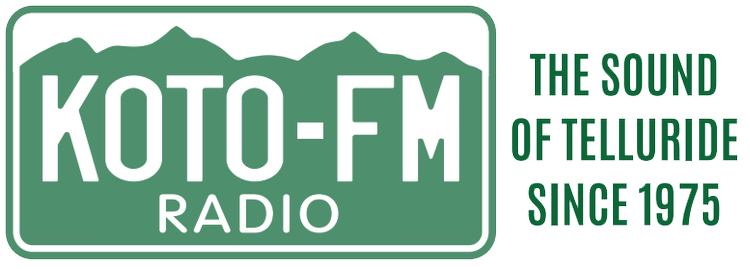By Julia Caulfield
The snow is flying, biting the mountaintops. But it wasn’t so long ago that fire was burning across the region. In August, the Bucktail Fire burned over 7,000 acres just outside of Nucla.
Dani Reyes-Acosta was driving home to the West End from a camping trip when she heard about the fire.
“Coming down from the mountains, and realizing I’d spent so much time doing something that felt like I connect to myself and people I love and the land. To go home and realize that this land, separated only by a few miles, but connected by a waterway was burning,” recalls Reyes-Acosta. “And there were people out there actively putting their lives in danger and what was I going to do? Just let it happen?”
No. Reyes-Acosta decided to show up in a way she knew how. Food.
She was going to cook dinner for the firefighters battling the Bucktail Fire.
On her way home, Reyes-Acosta stopped by the Clark’s Market in Norwood to pick up supplies.
“As I’m going through the aisles picking up 12 pounds of dried beans and 15 pounds of onions – because of course I’m going to make a Mexican homecooked meal from scratch. It turned out that Tonya Stephens from Nucla-Naturita Fire and EMS is on the phone with the Norwood store manager. Tonya is getting everything arranged so we can have food donated to these folks,” says Reyes-Acosta.
As it turns out, the wheels were already in motion.
Tonya Stephens has been a volunteer EMS firefighter in Nucla for over 20 years. The day the fire started she sent out a message on Facebook.
“I sent this out about 10 [o’clock at night]. I said ‘I’ll be at the firehall in Nucla at 5 in the morning to fix breakfast for the firemen. Message me if you can help’,” says Stephens. “I had eight people respond almost immediately. I went to bed at 11 and I knew that I had help in the morning.”
From there, a community swell of support blossomed. Folks in the West End, young and old, showed up to donate ingredients or money, and give their time to prepare food.
Preparation moved from the fire hall to the community center. Dozens of members of the community came in and out to prepare breakfast, lunch, and dinner for over 150 wildland firefighters.
“In the mornings, at 4:30 in the morning, we get together and we split it in shifts,” says Cassandra Farmer, another Nucla volunteer EMS firefighter, wife, mom, general do gooder in the community. “4:30 a.m. they get together. They get breakfast made. They get lunches made. It has to be to the fire by 6:30 in the morning, so the firefighters can eat breakfast. At 7 o’clock they have their roundup, they figure out what they’re going to do for the day, grab their lunches and head out to the line and fight fire,”
Farmer says second shift comes in the afternoon. "Then we come back together in the afternoon, cooking dinner, prepping lunches for tomorrow. And then about 6 p.m. we take dinner up to the line, get it all ready, firefighters start coming in and we feed them all. They come through, they eat dinner, they go to their little camp at basecamp,” says Farmer. “We clean up, we come home, and we do it all again tomorrow until the fire’s over.”
Fire camp is several miles outside of Nucla. Juniper, oak brush, pinion pine stretch into the distance. The fire is out of sight, over a ridgeline. Over the course of several hours, men and women covered in soot and dirt file through getting their warm meal.
Several remark it’s the best food they’ve ever had at fire camp.
It’s an expression of ordinary people doing extraordinary acts for the common good. But Stephens and Farmer say in Nucla it shouldn’t be a surprise.
“When somebody needs something. If somebody is in trouble, if something is happening and they need support, we all come together and we support them. It is just what we do,” highlights Farmer. “When the firefighters come through that line to get their dinner and they’re so excited and they’re so genuinely thankful. That feeds your heart, and that makes your heart happy to know that you’re part of that.”
The Bucktail Fire burned across the mesa for several weeks. In the end, a Nucla man pleaded guilty to starting it.
While the fire has been contained, the power of community coming together is still there for Reyes-Acosta.
She muses, “when we own the fact that we are small but mighty. Whether it’s one person or one community, but we step into our power of saying ‘what can I do?’ That’s where beautiful things happen.”
The smoke may be gone, but the strength of Nucla, its heart, is still burning bright.



